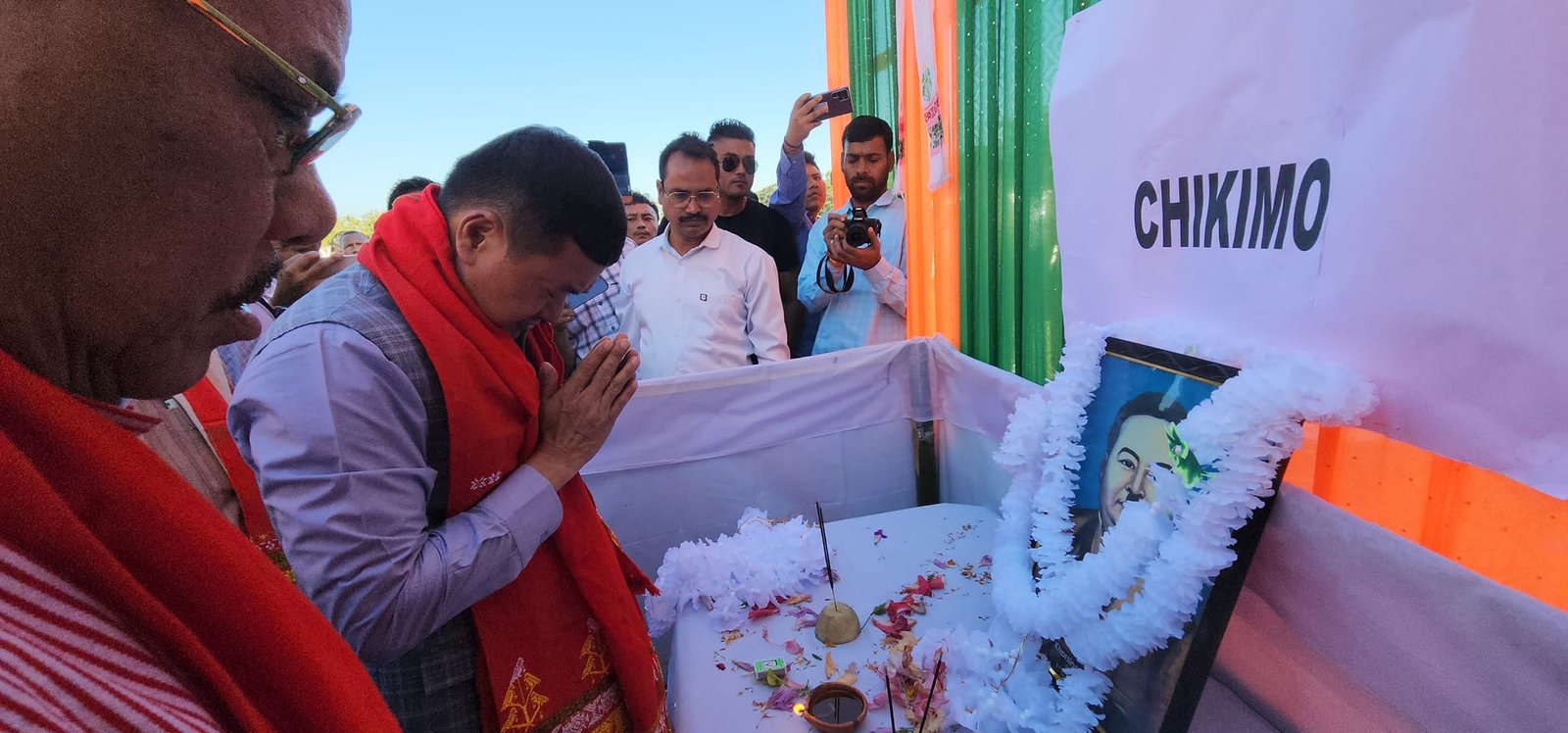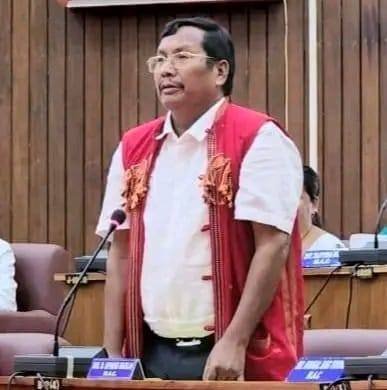By Augustine Teron
DIPHU, Oct 8: D. Uphing Maslai, a prominent Tiwa writer, politician, and Executive Member (EM) of Karbi Anglong Autonomous Council (KAAC) responsible for the Animal Husbandry & Veterinary Department, recently participated in a two-day international seminar titled ‘Kokborok and Other Languages of North East India’ on October 1 and 2. The event was held at Tripura Tribal Folk Music College, TTAADC, Khumulwng, Agartala, and focused on linguistic connections in the region.
This marked Maslai’s second visit to Khumulwng, with his first visit being for a vocabulary development workshop of Kokborok (Triprasa language), Tiwa (Tiwasa) language, and Dimasa language organized by TTAADC.
During the seminar, EM Maslai presented a comprehensive 33-page paper on the linguistic closeness of Tiprasa, Tiwasa, and Dimasa languages. He highlighted the issue of assimilation faced by the Tiwa tribe, emphasizing that religious conversion into Sankaria has led to the erosion of their language, culture, and traditions. According to the 2011 census, there are approximately 3,71,000 Tiwas in Assam, with only about 8% (approximately 34,000) still speaking the Tiwa language, classified as highly endangered by UNESCO.
Maslai shared insights into the Tiwa tribe’s history, tracing their origins to Tibet and their affiliation with the Tibeto-Burman language-speaking group. He noted that the Tiwa tribe, along with Dimasas and Tiprasas, was among the most recent to diverge from the larger Kachari race.
Regarding script, Maslai advocated for the use of the Roman script for writing the Tiwa language, as it aligns better with Tiwa phonetics compared to the Assamese script. He emphasized that this choice would help prevent further assimilation of the Tiwa culture.
The EM also drew parallels with the Khasi language, which now uses the Roman script and was recently removed from UNESCO’s endangered languages list, signifying its stability. In contrast, the Bodo and Assamese languages, included in the 8th Schedule of the Indian constitution, still face challenges from external influences.
Maslai concluded by addressing land alienation issues faced by tribal communities, citing examples from Karbi Anglong and Dima Hasao. Despite constitutional safeguards in the 6th Scheduled provision, outsiders are illegally acquiring land, resulting in cultural assimilation.







